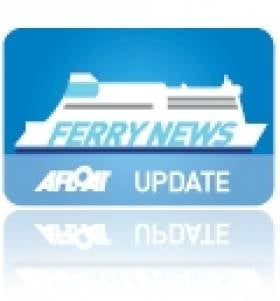Displaying items by tag: Ferry Strike
The passenger car ferry service to Rathlin Island running from Ballycastle on the Antrim coast have been affected due to industrial action with all sailings cancelled today, 5 January.
Operating the route to Northern Ireland's only inhabited island, is Rathlin Island Ferry Ltd which has advised passengers of the disruption on its website which also informs that their office will remain closed.
According to BBC News NI, it understands that employees are striking over pay and conditions.
With a population of around 150, islanders are served by Rathlin Island Ferry Ltd on behalf of the Department for Infrastructure.
In response to the strike, a department spokesperson said it "hopes a resolution to the ongoing dispute can be achieved through negotiations between the employers and the union". They added "Emergency cover will remain in place during the strike period"
BBC News NI has contacted the operator and the trade union Unite.
Usually in January, there are 10 sailings operating per day, with five sailings in each direction and beginning at 08:00 GMT from (Church Bay) Rathlin.
The six-mile journey can take between 25 minutes operating a passenger only fast-craft to 40 minutes using as Afloat adds the 5 car / 1 lorry capacity ferry.
The fast-craft Rathlin Express can take 98 passengers and was introduced in 2009 and the car-ferry Spirit of Rathlin with 125 passengers has been in service since 2017.
Both vessels were custom-built by Arklow Marine Services in Co. Wicklow.
Prior to entering service the newbuild Spirit of Rathlin made a once-off call to Greystones Harbour to carry out vehicle-trials at the slipway.
Strike Action Leads to Cancelled Brittany Ferries Sailings
#SAILINGS CANCELLED – Due to a series of wildcat strikes yesterday by French employees of Brittany Ferries, the company has cancelled sailings on the Cork-Roscoff route until further notice and on its other routes to the UK and Spain.
The cancellation of sailings on the weekend only (round-trip) operated Irish route, led to passengers having to take alternative travel arrangements. Instead of departing Roscoff last night, passengers were given passage on board last night's departure from Cherbourg using the Celtic Link Ferries service to Rosslare, which is scheduled to arrive later today at lunchtime.
It has been suggested by Brittany Ferries, that customers who had booked on today's (cancelled) 16.00hrs sailing from Cork to Roscoff, should instead depart Rosslare with Celtic Link Ferries or Irish Ferries which also operates to Cherbourg.
For information and sailing updates from Brittany Ferries click HERE.
























































